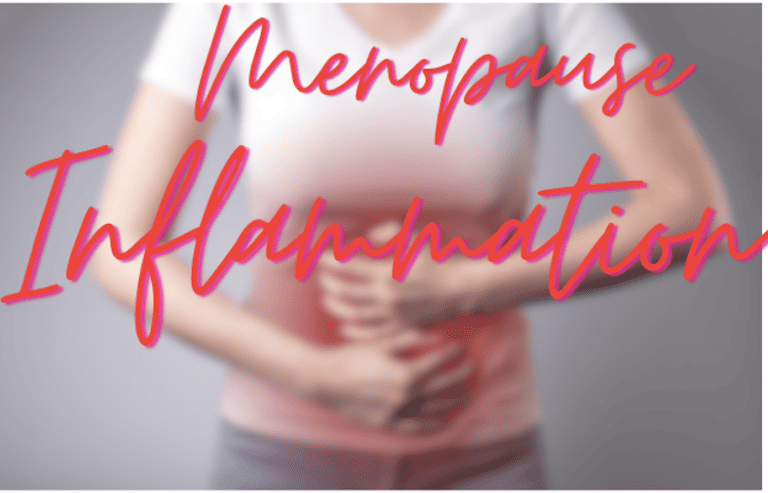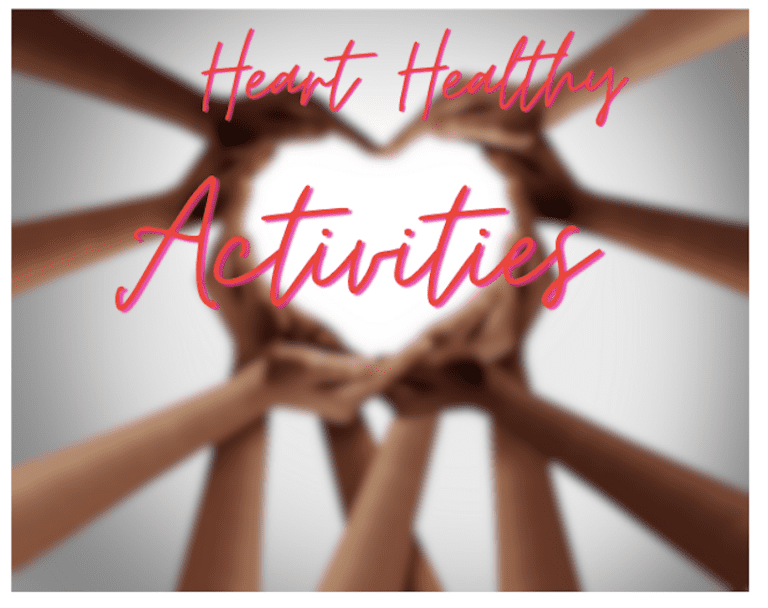Does Menopause Make You Tired?
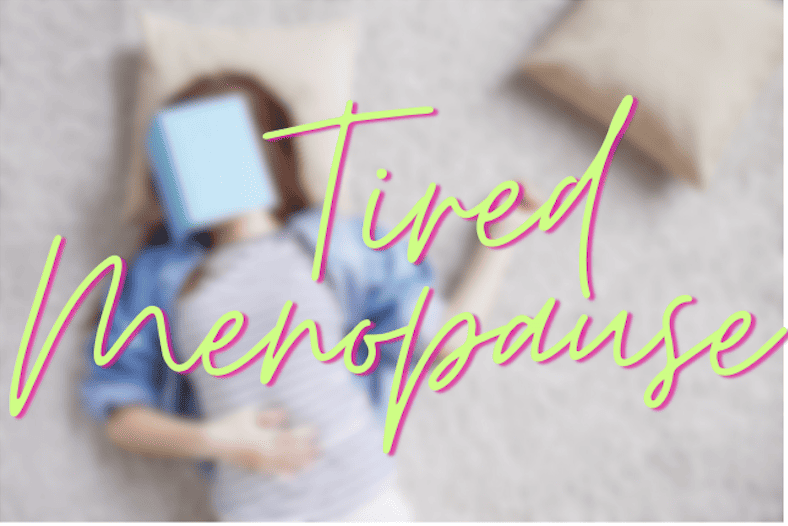
Does menopause make you tired? You bet it does, every step of the way. The simple truth is the hormone changes alone can make anyone in menopause tired.
Indirectly, all the other menopause symptoms, hot flashes, night sweats, mood swings, bloating, brain fog, and even the unusual menopause symptoms pile up and my goodness, I can assure you, they all make us tired.
This isn’t about being a victim of menopause, it is just to reassure you that you aren’t going crazy if you are over 50 and in menopause, you are tired.
What is Menopause fatigue?
Menopause fatigue is the most common of menopausal symptoms. Not only is it hormonally driven but dealing with night sweats, hot flashes, mood swings, and all the other physical attributes. Many women also get sleep apnea meaning that even if we don’t remember waking up in the middle of the night, sleep apnea disrupts the best of sleep.
For me, sleepless nights and fatigue are the worst aspects of menopause. It affects everything from day-to-day life, relationships and how we look, bags under our eyes, struggling to stick to a schedule, forgetfulness. The fatigue is real and there are a couple of ways to balance and take the edge off of menopause fatigue.
The Obvious
As we all know, menopause symptoms such as hot flashes, night sweats, mood swings, and bloating all make us tired directly and indirectly.
Directly:
It is as simple as the hormonal shifts make us tired.
Indirectly:
Hot Flashes – Sleep Disruption
Night Sweats – Sleep Disruption
Bloating – Sleep Disruption
Mood Swings – Sleep Disruption
Sleep Disruption – Tired
Hormonal Changes and Energy Levels
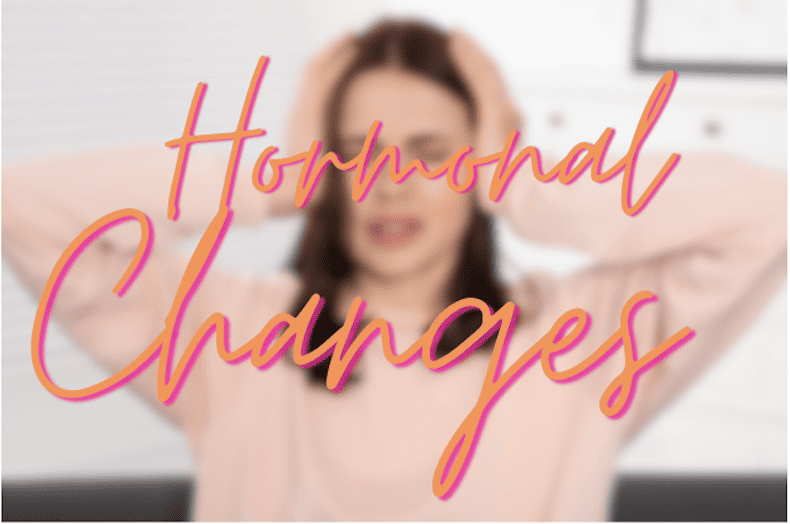
A change in hormone levels during menopause leads to menopausal fatigue. One hormone out of balance can send messages throughout our bodies reacting to mood changes, appetite, libido and energy levels.
The Gut Brain Connection
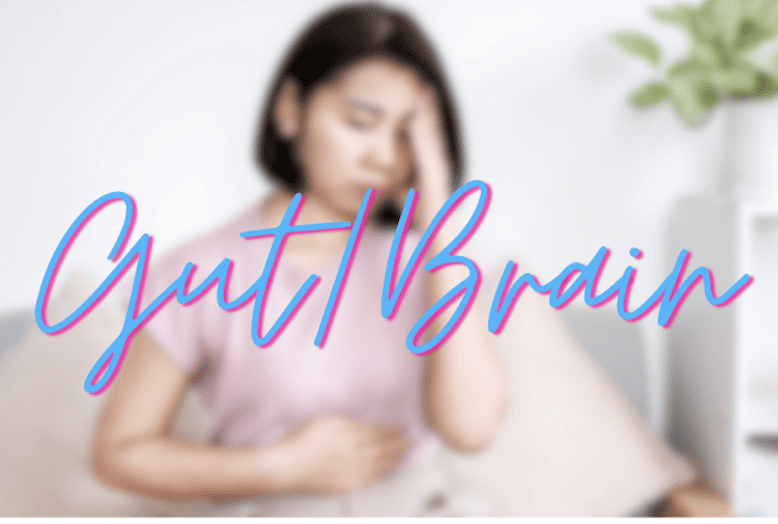
The gut brain axis is the relationship between the central nervous system and the enteric nervous system, linking cognitive and emotional responses in the brain to intestinal distress. If you are under stress, or not feeling well, you feel it in your intestines. If you have a digestive system issue, you feel it as a headache, dizziness, or as simple as bad mood disorders.
Irritable bowel syndrome is the best example of the gut brain axis. If you have IBS, you feel irritable. If you have anxiety, depression-like behavior, or again basic mental health issues, you might have irritable bowel syndrome.
It’s all a vicious circle, if you have a headache, you might take ibuprofen or acetaminophen, both take the “good bacteria” from your intestine and disrupt your gut microbiota, but if you replace the “good bacteria” the headache might just disappear without having to take an over the counter medicine.
Emotional Well Being and Fatigue
Menopause symptoms include hot flashes, mental health, anxiety, brain function(brain fog) as well as stress. The decrease of estrogen during menopause affects your mental health as well as your physical health.
Because of the decrease in estrogen, menopausal women also encounter inflammation, bloating, and constipation because our body’s digestive system has slowed down. Our overall health is taking a beating as we try to balance what is going on in our minds as well as our bodies.
It is my experience that starting with gut health leads to a more positive mental health approach to menopause. When we solve the problems of our guts with probiotics leads to positive mood changes, less hot flashes, other symptoms of menopause, including sleep quality.
Physical Changes and Fatigue
There are two ways to look at menopausal fatigue and being physical. I know it is hard to think about being active when we are in the throws of menopause, but there is no room for excuses, we need to exercise when we are
Lifestyle Factors and Fatigue

Many women including me struggle with trying to figure out why they are so tired during menopause and sometimes it is our own lifestyle factors that lead to poor sleep quality and fatigue.
Alcohol consumption is the root of all menopause evil. It effects our matabolisms, brain function, and organs like our livers and kidneys.
Nicotine is the root of all evils. There are so many carnecigins
Caffeine believe it or not effects hot flashes by making them stronger and more often, it obviously effects our sleep routines. Try not to consume too much caffine and definitely don’t consume after 2pm in the afternoon.
Coping Strategies
There are many ways to conquer menopause symptoms as well as improve sleep quality in menopausal women so we aren’t so tired throughout the day.
Healthy Sleep Routine
Eat the Right Foods at the Right Amounts
Watch Alcohol, Nicotine, and Caffine
Stay Hydrated
Menopause Supplements

Menopausal women can find relief from symptoms of menopause and other symptoms with dietary or herbal supplement.
There are also a variety of probiotic supplements that can offer relief from gastrointestinal problems. Certain probiotics assist with certain diseases. There are many supplements for a variety of issues like menopause, irritable bowel syndrome, Crohn’s disease, ulcerative colitis, and other gi tract issues.
Conclusion
Menopause fatigue and menopause symptoms such as hot flashes all lead to being tired, all day, day after day. There are many ways to tackle being tired all the time during menopause from exercising, healthy sleep routine, hydrating, supplements and probiotics.
These are all simple changes that I can promise will prove to be successful in your fight for comfort during menopause. Remember, be patient and kind with yourself.
FAQ
What Does Menopause Fatigue Feel Like?
Menopausal fatigue feel like a permanent fog, it’s like a glaze over everything from head to toe.
How Long Does Menopause Fatigue Last?
The problem with menopause fatigue, it starts far sooner than we know during the perimenopause phase of menopause and before our periods end. If you become aware of menopause fatigue as early as possible, menopause fatigue can have a short lived life.
How Can I Get My Energy Back During Menopause Fatigue?
Exercise, a regular sleep routine, eating the right foods, supplements, stay hydrated and probiotics.

